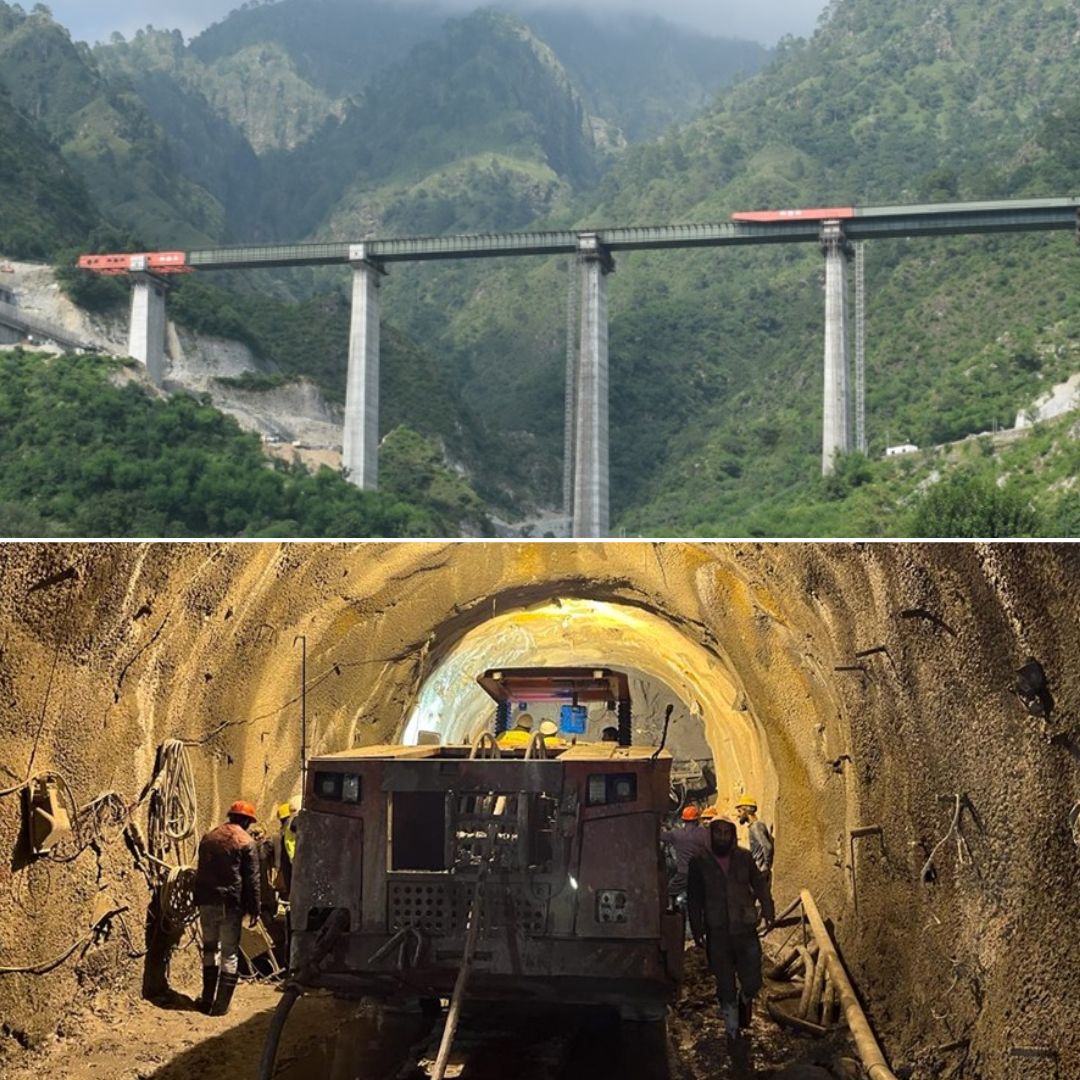Good News for Jammu and Kashmir! Katra-Banihal Rail Route Nears Completion, Bringing Connectivity to the Valley 2023

Good News for Jammu and Kashmir! Katra-Banihal Rail Route Nears Completion, Bringing Connectivity to the Valley 2023
The national transporter is putting in constant effort to finish the unfinished work in the valley.
Jammu & Kashmir has good news! Soon trains will be able to travel along the eagerly anticipated Katra-Banihal rail link. By completing 95% of the construction on the 111 km long section of the Udhampur-Srinagar-Baramulla Railway Line (USBRL) project, the Indian Railways has moved closer to connecting Kashmir Valley to the rest of the nation.
Jammu and Kashmir, a picturesque region nestled in the lap of the Himalayas, is set to witness a significant transformation in its connectivity landscape. The Katra-Banihal rail route, a long-anticipated project, is nearing completion.

This development promises to revolutionize transportation in the valley, opening new doors of opportunities for both locals and tourists. With its inauguration on the horizon, Jammu and Kashmir’s dream of seamless rail connectivity will soon be realized.
The national transporter is working nonstop to finish the unfinished construction in the valley. Ongoing building is being done on the remaining portion. Out of the 272 km of rails, the railways have already put 161 kilometres into service. Speaking to the media, SP Mahi, the USBRL’s Chief Administrative Officer (CAO), stated that 161 kilometres of the project’s 272 km of railway track had already been put into service. Despite all geological, topographical, and weather obstacles, the current construction on the remaining 111 km. of the Katra-Banihal stretch is up to 95% complete.

The Katra-Banihal rail route is an ambitious project undertaken by the Indian Railways to link the holy town of Katra, the gateway to the revered Vaishno Devi shrine, with Banihal, a small village in the scenic Kashmir Valley. Spanning approximately 111 kilometres, this rail route traverses the formidable Pir Panjal mountain range, known for its rugged terrain and challenging topography.
Significance of the Project:
- Enhanced Connectivity: Completing the Katra-Banihal rail route will significantly enhance connectivity between Jammu and Kashmir’s two prominent regions. It will facilitate seamless travel for pilgrims, tourists, and locals alike, eliminating the need for arduous journeys through treacherous mountainous roads.
- Economic Growth: The new rail route will be pivotal in fostering economic growth in Jammu and Kashmir. Improved connectivity will attract investments, boost tourism, and open up avenues for trade and commerce. The region’s rich natural beauty and cultural heritage will be more accessible to a more significant number of people, leading to increased tourist footfall and revenue generation.
- Social Integration: The rail route will catalyse social integration, connecting the people of Jammu and Kashmir and strengthening the bond between various communities. It will promote cultural exchange, encourage tourism-based employment opportunities, and enable the exchange of ideas, knowledge, and experiences.
Constructing the Katra-Banihal rail route posed numerous challenges due to the region’s mountainous terrain and harsh climatic conditions. However, the project has significantly progressed over the years, overcoming various obstacles. The construction involved:
Cutting through mountains.
Building tunnels, bridges, and viaducts.
Showcasing the determination and engineering prowess of the Indian Railways.
The most remarkable milestone of the project was the completion of the 8.5-kilometre-long Pir Panjal tunnel, the longest rail tunnel in India, which significantly reduced travel time. This tunnel, along with other smaller tunnels and bridges, adds to the engineering marvel of the project.

Benefits for the Local Population:
The completion of the Katra-Banihal rail route brings a host of benefits to the local population:
- Convenience: The rail route will provide a convenient and comfortable mode of transportation for the locals, making their daily commute more accessible and faster.
- Employment Opportunities: The project has generated many jobs during its construction phase, employing residents. Additionally, increased tourism and economic activities will create more job opportunities in the hospitality, tourism, and service sectors.
- Education and Healthcare Access: The rail connectivity will improve access to educational institutions and healthcare facilities for the people residing in the remote areas of Jammu and Kashmir.
The USBRL project and other current railway construction in the Union Territory were thoroughly inspected last week by Shobhan Chaudhuri, General Manager (GM), Northern Railway (NR) zone. He started his examination from Katra and proceeded by motor tram up to tunnel T1, where he completed a thorough inspection and review.

The general manager gave all officers and employees the go-ahead to begin working diligently on the T1 tunnel project while taking all necessary safety procedures. The geology of the Himalayas is the most challenging part of the effort to complete the T1 tunnel. Additionally, Chaudhuri went to the Chenab Bridge and conducted a thorough examination from the Chenab Bridge to the Dugga station. He requested that the project’s electrical and S&T work be completed more quickly.

The nearing completion of the Katra-Banihal rail route is undoubtedly a significant milestone for Jammu and Kashmir. This development enhances connectivity and brings along a wave of economic growth, social integration, and improved livelihoods for the local population. The region’s unparalleled beauty and cultural heritage will now be more accessible worldwide, fostering tourism and boosting the economy. As the rail route becomes operational, Jammu and Kashmir will witness a new era of progress and prosperity, firmly establishing its place on the map of thriving destinations.



